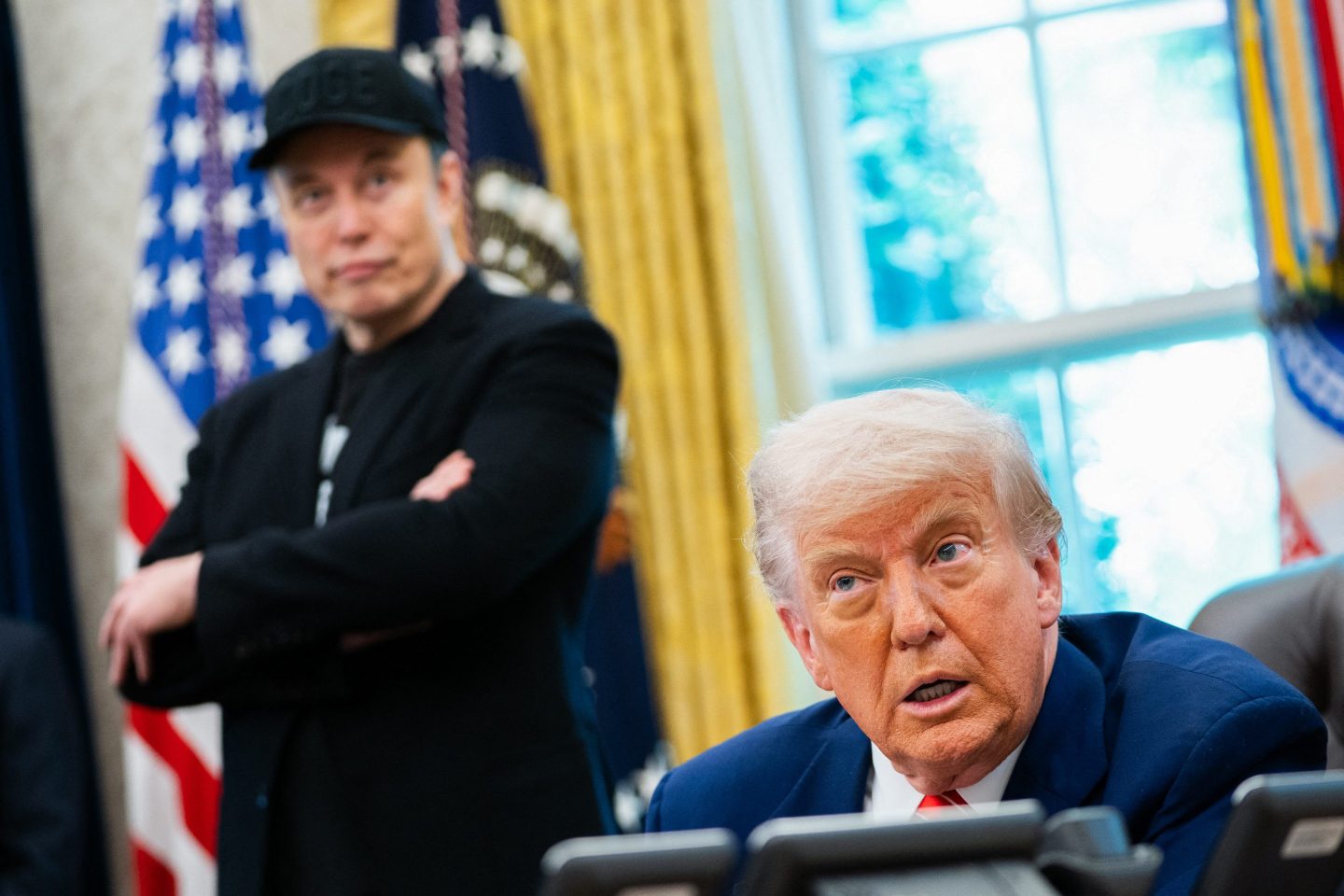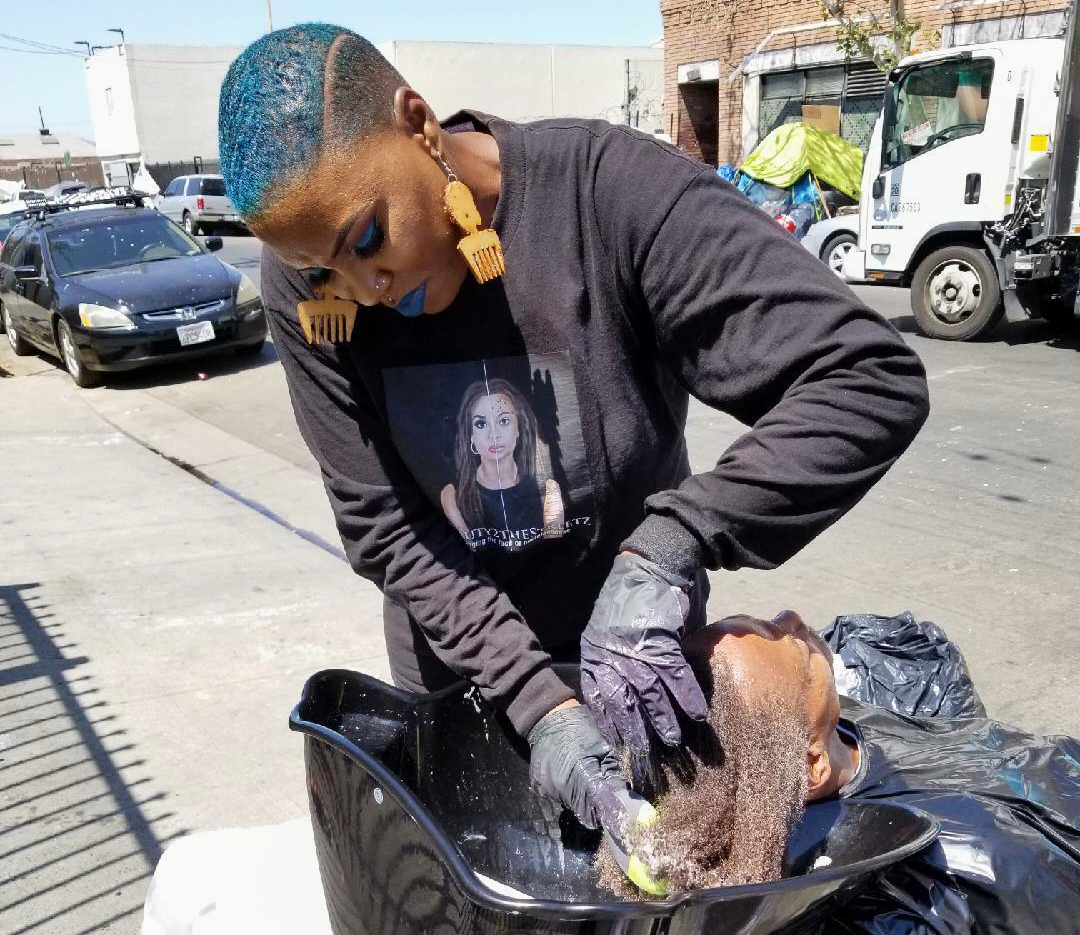While Americans are pinching their pennies amid SNAP cuts, soaring housing costs, and mass layoffs, the ultra-rich are seeing unprecedented wealth gains. In the coming years, we could even have our first trillionaire: Elon Musk.
Now, a new report from Oxfam has revealed that the 10 richest U.S. Billionaires added $698 billion to their net worths in the past year.
Nearly the entire ultra-rich cohort is made up of tech leaders profiting from the gold rush in tech and AI, including Oracle cofounder Larry Ellison, Amazon founder Jeff Bezos, Google cofounders Larry Page and Sergey Brin, Meta CEO Mark Zuckerberg, Nvidia CEO Jensen Huang, ex-Microsoft CEO Steve Ballmer, and Dell founder Michael Dell.
On average, each person on America’s top 10 rich list gained $69.8 billion over the past year—they made 833,631 times more than what the typical American household takes home.
While Musk defends his eye-watering $1 trillion pay package, the average U.S. Household only brought in $83,730 last year, according to U.S. Census data.
In contrast, 40% of American households are ‘poor,’ Oxfam says
While billionaires are getting richer, Americans are scraping by on their measly paychecks.
Over 40% of the U.S. Population—including nearly 50% of children—are considered to be poor or low income, according to the report. And looking at trends within the last few decades, the worsening wealth divide is even more stark. Between 1989 and 2022, a rich U.S. Household at the 99th percentile (or top 1%) gained 101 times more wealth than the average home.
In fact, the wealthiest 0.1% of Americans today own 12.6% of assets and 24% of the stock market. Meanwhile, the bottom 50% of the U.S. Owns just 1.1% of the exchange.
Women and people of color have been hit hardest by mounting inequality; the average male-headed household gained four times as much wealth compared to the average female-led home. The fortunes of white households were bolstered 7.2 times more than the average Black household, and 6.7 times higher than the typical Hispanic/Latino home. And despite making up one-third of the U.S. Population, Black and Hispanic/Latino households only hold 5.8% of the country’s wealth.
What’s worse, America’s wealth gap is only expected to grow wider, the report warns, thanks to the Trump administration’s One Big Beautiful Bill, job scarcity, and an impending recession.
The Gilded Age returns: Why America’s wealth inequality is getting worse
History seems to be repeating itself; the wealthiest 0.0001% control a greater share of wealth than in the Gilded Age, according to the report. Billionaires have become king in America, and the new administration is passing legislation to safeguard their fortunes.
“The Trump administration risks exponentially accelerating some of the worst trends of the past 45 years,” the Oxfam study notes, “having already overseen in less than one year a massively regressive tax reform, major cuts to the social safety net, and significant rollbacks for worker’s rights.”
President Trump passed his One Big Beautiful Bill this July, which entails reducing the tax bill of the top 0.1% of earners in the country. By 2027, it’s expected that the statute will shave $311,000 off the tax costs of the ultra-rich, while the poorest Americans—making less than $15,000 annually—will be forced to pay even more in taxes. Among the 10 largest economies in the Organization for Economic Co-operation and Development (OECD), the U.S. Is ranked second-to-last in using its tax and transfer system to fight inequality. In that cohort, America also has the highest rate of relative poverty.
While America is home to more billionaires than any other country in the world, the average U.S. Citizen isn’t getting a slice of the monumental economic success. Moody’s chief economist, Mark Zandi, told Coins2Day last month that lower-income households are “hanging on by their fingertips financially.” Cost of living is raging, high-paying job opportunities are scarce, and layoffs are on the rise. To add fuel to the fire, America is descending into a recession; and 22 U.S. States are already seeing their economies contract, putting tight finances on the line.
“The grip feels more tenuous because no one’s getting hired. You can sustain that for a while, but you can’t sustain that forever. If the layoffs do pick up, that lower-middle-income group is gonna get nailed—and they have no options,” Zandi said. “They have debt: They have auto debt, they have student loan debt, they may, if they’re lucky, have a mortgage, but they’re gonna struggle, and their world is going to descend into recession pretty quickly.”













